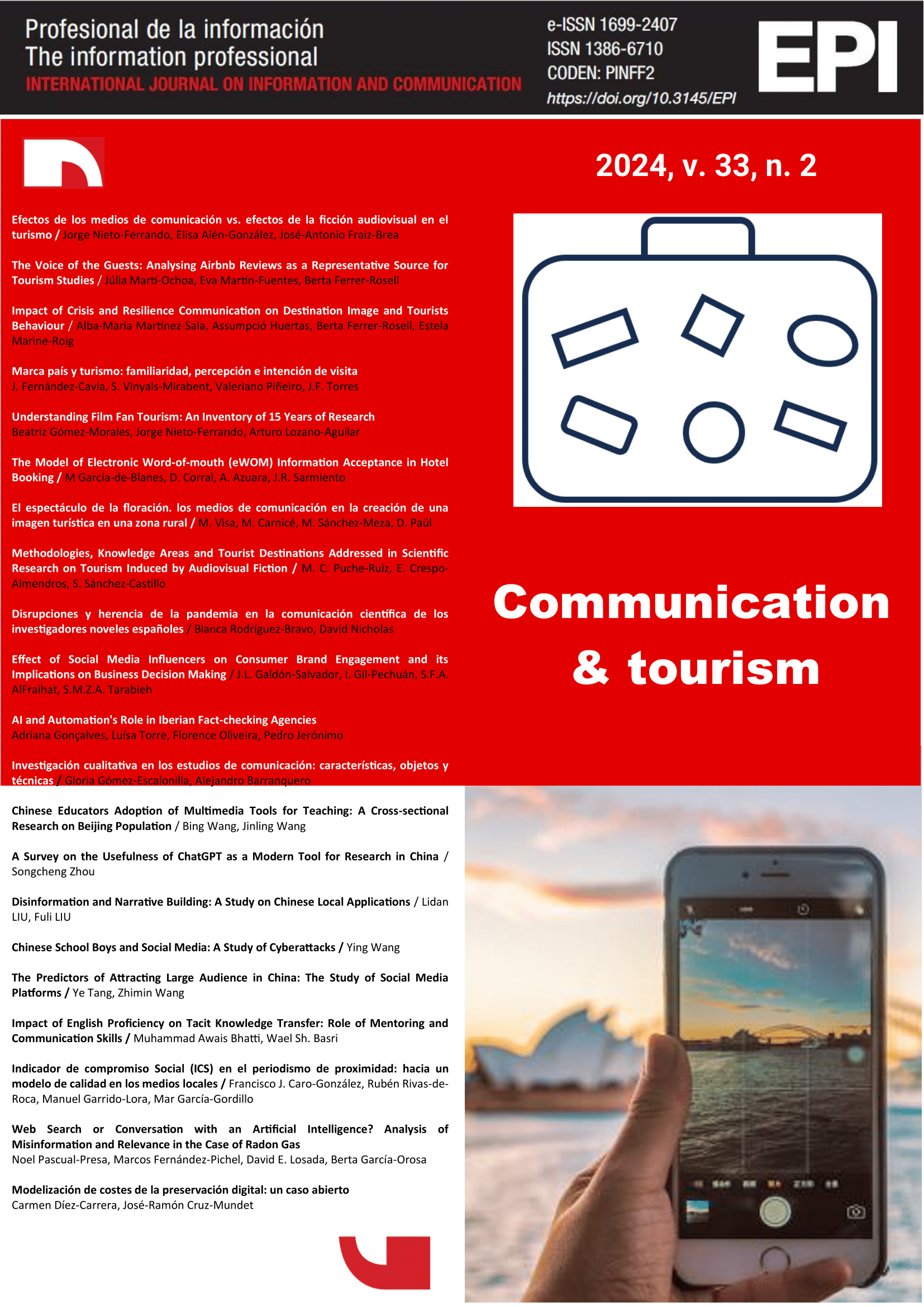The Voice of the Guests: Analysing Airbnb Reviews as a Representative Source for Tourism Studies
DOI:
https://doi.org/10.3145/epi.2024.0202Palabras clave:
Online Reviews, Airbnb, Representativeness, Electronic Word of Mouth (eWom), User-generated Content (UGC, Sentiment Analysis, Social Media, Polarity, Comments.Resumen
User-generated content on social media has led to a new form of communication known as electronic word of mouth, which generates millions of comments about goods and services on the internet every day. This openly accessible content is crucial for prospective consumers as it helps in decision-making, but it is also valuable for product or service providers, as it allows them to improve their businesses based on user reviews, some of which are highly detailed. Another interest group that benefits from these comments are researchers and academics, as it allows them to obtain and analyse information for their studies at a relatively low cost in terms of time and money. The present study aims to perform a sentiment analysis of comments posted by guests staying at a property offered by Airbnb to determine whether their opinions about their experience are positive or negative. However, before doing so, it is necessary to find out the percentage of people who write a review about the service received on Airbnb to verify the representativeness of the reviews on this platform. To achieve this, thousands of comments posted in one year on Airbnb for the four most touristic cities in Spain are analysed: Madrid, Barcelona, Seville, and Valencia. The results show that opinions on Airbnb are much more representative compared to other platforms, as a very high participation rate is calculated. Furthermore, these opinions are predominantly positive, indicating a high level of satisfaction with the service provided.
Descargas
Descargas
Publicado
Cómo citar
Número
Sección
Licencia
Derechos de autor 2024 Profesional de la información

Esta obra está bajo una licencia internacional Creative Commons Atribución 4.0.
Condiciones de difusión de los artículos una vez son publicados
Los autores pueden publicitar libremente sus artículos en webs, redes sociales y repositorios
Deberán respetarse sin embargo, las siguientes condiciones:
- Solo deberá hacerse pública la versión editorial. Rogamos que no se publiquen preprints, postprints o pruebas de imprenta.
- Junto con esa copia ha de incluirse una mención específica de la publicación en la que ha aparecido el texto, añadiendo además un enlace clicable a la URL: http://revista.profesionaldelainformacion.com
La revista Profesional de la información ofrece los artículos en acceso abierto con una licencia Creative Commons BY.




